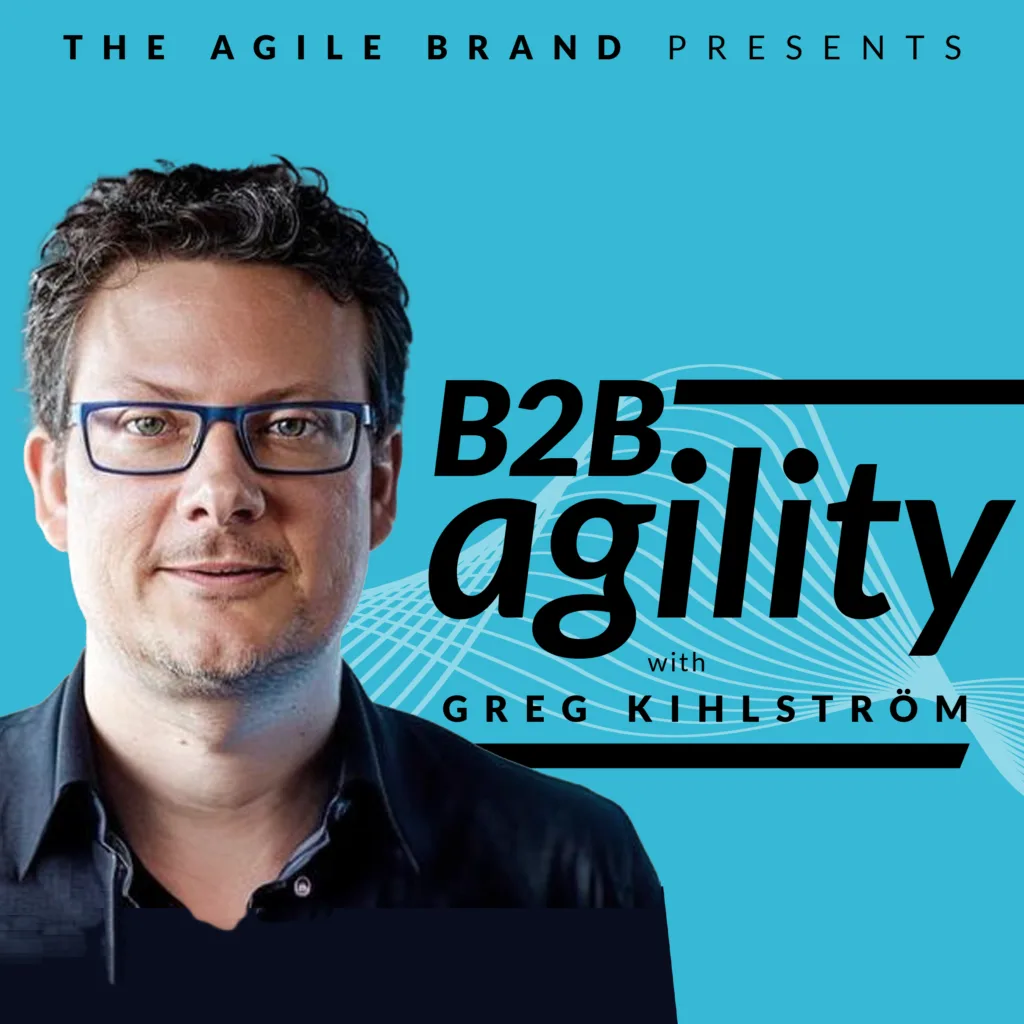This article was based on the interview with Tiffany Grinstead of Nationwide Insurance] by Greg Kihlström, AI and Marketing keynote speaker for the B2B Agility with Greg Kihlström podcast.
Listen to the original episode here:
Personalization is a key driver of success in B2B marketing. It involves tailoring marketing strategies and messages to individual customers or target audiences, based on their unique needs, preferences, and behaviors. By delivering personalized experiences, B2B brands can create more engaging and inspiring stories that resonate with their audience and drive them to take action.
In the episode titled “Using Personalization to Create More Engaging and Inspiring Stories for B2B Brands,” the host, Greg Kihlstrom, interviews Tiffany Grinstead, Vice President of Personal Alliance Marketing at Nationwide Insurance, to discuss the importance of meaningful personalization in B2B marketing. Grinstead shares insights into the types of marketing her team does and how personalization benefits their efforts.
Nationwide Insurance operates in the financial services and insurance industry, offering various insurance solutions, including personal lines insurance. Grinstead’s role focuses on working with independent agency partners and direct-to-consumer operations to reach customers with auto, homeowners, and power sports insurance solutions. The marketing team at Nationwide works on segmentation, strategy, messaging, product development, and customer insights to deliver personalized experiences throughout the customer journey.
Grinstead emphasizes the importance of understanding customer data and leveraging it to deliver the right message at the right moment to drive the desired action. Personalization involves tailoring messages, mediums, and moments to meet the needs and preferences of customers, whether they are intermediaries, insurance agents, or consumers. By analyzing data and identifying key moments in the customer journey, B2B brands can personalize their marketing efforts to increase engagement and drive conversions.
However, implementing personalization in B2B marketing can present challenges. Teams often run into roadblocks when trying to coordinate various pieces, such as data collection and analysis, message personalization, and channel selection. Effective personalization requires a robust data infrastructure, a deep understanding of customer insights, and the ability to coordinate and execute personalized strategies across different channels and touchpoints.
To overcome these roadblocks, B2B marketing teams need to invest in the right technology and tools that enable data collection, analysis, and automation. They also need to prioritize collaboration and communication among team members to ensure a seamless and consistent personalized experience across all customer touchpoints. Additionally, ongoing monitoring and optimization of personalization efforts are crucial to ensure that the right message is delivered to the right audience at the right time.
Personalization plays a crucial role in driving success in B2B marketing. By tailoring marketing strategies and messages to individual customers or target audiences, B2B brands can create more engaging and inspiring stories that resonate with their audience and drive them to take action. However, implementing personalization requires robust data infrastructure, collaboration among team members, and ongoing monitoring and optimization. With the right strategies and tools in place, B2B brands can leverage personalization to stand out and thrive in a competitive marketplace.










